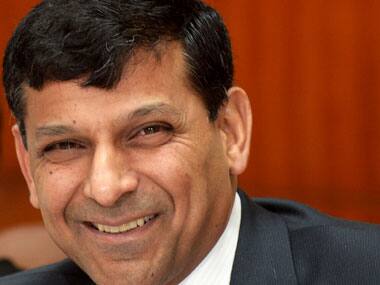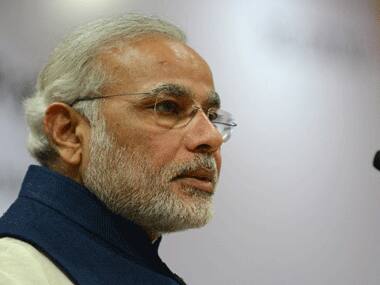by J Shivakumar and Inder Sud One is amused and yet troubled by the recent media discussion on the non-issue of whether Raghuram Rajan will continue as RBI Governor in case a Narendra Modi government takes over. This is a non-issue because whether we look at the matter from Modi’s point of view or Rajan’s. Their staying together is such an obvious win-win outcome that it is a no-brainer. Indeed,the two are made for each other and the country badly needs both of them. Modi has the reputation of recognizing honest and capable public servants and tapping the right person for the right job. He will find in Rajan a person of great integrity, a keen intellect, and a recognized international stature. By all accounts, Rajan has so far performed exceptionally well during his short tenure at the RBI, earning the trust and respect of his staff and others who have interacted with him. He understands, through direct experience, both the Central Government and the RBI’s points of view on major economic policy issues. He is an amiable person who is respectful to others and performs well as a team member. And above all, he is eminently qualified for the job, particularly in the globalized world where the bar for international acceptability is set higher than ever before. It would be hard to find an alternative with such a high standing in the global financial world, precisely what the next Prime Minister needs to gain credibility quickly in a somewhat biased western world. [caption id=“attachment_1517931” align=“alignleft” width=“380”]  Raghuram Rajan. AFP.[/caption] Some media outlets have reported that several top BJP functionaries are unhappy with Rajan because of so-called policy differences on the trade-off between growth and inflation goals. Rajan, as a highly acclaimed economist, has written extensively about the need to strike the right balance. And there is nothing in Modi’s pronouncements that he does not recognize the political dangers of inflation. The two will bring different perspectives, but share the common goal of growth and employment while keeping inflation low. Of course, the RBI governor will sometimes be required to take policy positions or make decisions that may hurt some political (and personal)interests. Rajan’s decision to keep interest rates high prior to the elections in order to tame inflation was not popular among many politicians in the Congress party. But it is not the job of the RBI Governor to make politicians happy; indeed keeping some politicians at bay maybe in the country’s best interest. Modi’s modus operandus in Gujarat that barred members of legislature from serving as the chairmen of boards of state enterprises makes us think that he is likely to give Rajan the necessary space and freedom of action. Fortunately, there has been a strong tradition in India ever since Independence of the appointment of men (unfortunately no women so far) of the highest caliberas the RBI Governors. Rajan, as the twenty-third governor, follows a long line of distinguished men like CD Deshmukh, LK Jha, IG Patel, Manmohan Singh, and others, who served the country with distinction. All political parties, despite growing political acrimony, have kept the tradition of appointing RBI Governors based on merit and without political consideration. The one sole unfortunate exception is the case of KR Puri, who appointed by the “infamous coterie” when Indira Gandhi was Prime Minister. This was despite strong written opposition from C. Subramniam,who argued forcefully that Puri, while a respected and accomplished player in the insurance industry, did not have the standing and the prior exposure to the financial world, so badly needed for credibility and acumen to deliver in that post. Luckily the RBI was not severely damaged by this decision. Some of the Deputy Governor’s filled the competence deficit needed for the job and, to his credit, Puri did not stand in their way. This speaks to the strength of RBI as an institution. There is also a tradition in India of not replacing RBI governors during the change of government. Nor have there been cases of RBI governors being dismissed unceremoniously because of policy disagreements. And in a few cases, when there were serious disagreements that stood in the way of policy coordination, they were eased out with a “soft landing” by being accommodated in other desirable postings like the lucrative position of India’s Executive Director at the IMF. [caption id=“attachment_1517933” align=“alignleft” width=“380”]  Narendra Modi. AFP.[/caption] Rajan understands well that ultimately government is supreme, but he is not the one to have to worry about having to bend to political pressures or soft landings. He is a man of international stature with many attractive options after his RBI tenure. He will be grabbed by many suitors the moment there is a hint of his being dissatisfied in his current position. But from all accounts, he is admirably dedicated to serve India and guide its economic journey and has demonstrated this. He would certainly like to complete the unfinished business in India, particularly when the Modi Government is likely to provide him a clear economic policy framework to operate within, unlike the multi-focal contradictory economic sources of power within the UPA government. His prospects of job satisfaction and success will be much higher than in the past. Finally it is heartening to note that RBI’s steady and good performance continued despite changes at the top. Like the Supreme Court, the Election Commission and the Union Public Service Commission, all manned from top to bottom by professionals, though some are appointed by politicians, the Reserve Bank continues to be an island of reasonably good performance in a sea of inefficiency. Modi and Rajan can be counted on to keep this tradition. J Shivakaumar is a retired IAS officer, now a resident of US. Inder Sud is an economist. Both have held several advisory positions in Indian and international agencies and have worked with the World Bank.
One is amused and yet troubled by the recent media discussion on the non-issue of whether Raghuram Rajan will continue as RBI Governor in case a Narendra Modi government takes over.
Advertisement
End of Article
Written by FP Archives
see more


)
)
)
)
)
)
)
)
)



